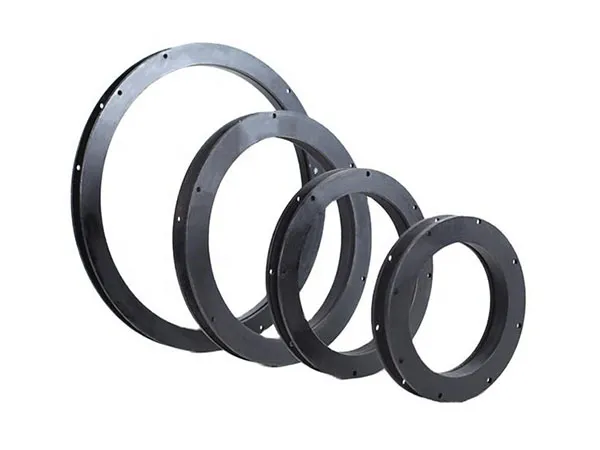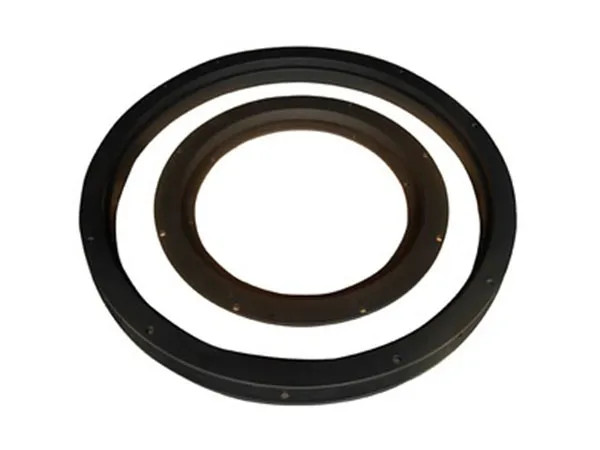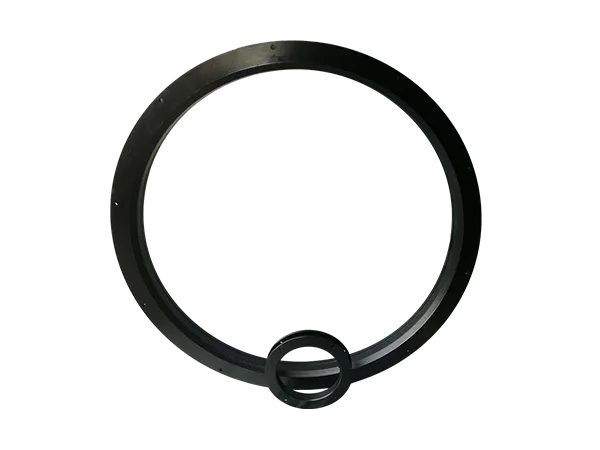- +86 13837949030 +86 15890619536
- info@lymcbearings.com export@lymcbearings.com
- Luoxin Industrial Cluster, Luoyang City,Henan Province,China
Time:2025-09-02 02:55:41 Source:LYMC Slewing Bearing
Trailer turntable bearings are crucial for the smooth and safe operation of trailers, especially those with steerable axles. When these bearings encounter issues, they can lead to significant problems.

Problem: This is often the most noticeable issue. You might hear clunking noises, feel excessive movement when turning, or see the trailer wheel assembly wobble.
It's usually caused by wear in the bearing components, improper adjustment, or damaged mounting points.
Solution:
Inspection: First, safely jack up the trailer so the wheels are off the ground. Grip the wheel assembly firmly at 12 and 6 o'clock, then 3 and 9 o'clock, and try to rock it. Any significant movement indicates play.
Adjustment: Many turntable bearings have an adjustment mechanism (often a castellated nut and cotter pin). Consult your trailer's manual for the correct torque specifications and adjustment procedure. Overtightening can damage the bearings, while undertightening leaves play.
Replacement: If adjustment doesn't resolve the play, or if there's visible damage to the bearing races or balls/rollers, replacement is necessary. This can be a complex job and might require specialized tools.
Problem: When you rotate the turntable by hand (with the trailer supported), you might feel a gritty, lumpy, or grinding sensation. This is a strong indicator of contaminated grease, damaged bearing components (pitting, spalling), or rust within the bearing.
Solution:
Lubrication: If the roughness is minor, sometimes a thorough cleaning and re-greasing with the correct type of high-quality grease can help.
Replacement: For significant roughness, especially if accompanied by noise, the bearings are likely damaged beyond repair and need to be replaced. Damaged bearing surfaces will continue to wear quickly.
Problem: Various noises can emanate from the turntable. Squealing often points to a lack of lubrication or worn components. Grinding or groaning usually indicates severe damage to the bearing elements or races.
Solution:
Lubrication: As with roughness, start by checking lubrication. Ensure the bearings are properly greased at regular intervals according to the manufacturer's recommendations.
Inspection & Replacement: If fresh grease doesn't silence the noise, a detailed inspection is needed. Look for signs of wear, pitting, or rust. Any significant damage will necessitate bearing replacement.
Verify Source: Ensure the noise is indeed coming from the turntable bearing and not from other components like brake drums, suspension parts, or even the tire.

Problem: The trailer becomes hard to steer or pivot, requiring excessive force. This can be caused by seized or partially seized bearings due to lack of lubrication, rust, or severe damage.
Solution:
Lubrication: Try thoroughly greasing the bearings. If they are merely dry, this might free them up.
Inspection & Disassembly: If lubrication doesn't help, the turntable will need to be disassembled for a detailed inspection. Look for corrosion, seized elements, or foreign objects.
Replacement: In most cases of significant stiffness due to internal damage or severe corrosion, bearing replacement will be the only effective solution.
Problem: The bearing hub or surrounding area becomes excessively hot to the touch after operation. This is a critical issue that can lead to catastrophic failure.
Causes include insufficient lubrication, overtightening, overloading, or damaged bearing components increasing friction.
Solution:
Immediate Stop: If you detect overheating, stop the trailer immediately and allow it to cool. Do not continue driving.
Check Lubrication & Adjustment: Once cool, check grease levels and bearing adjustment. Ensure they are not overtightened.
Inspect for Damage: Overheating often indicates internal damage. Even if cooled, the bearing's integrity might be compromised. A thorough inspection for pitting, discoloration, or deformation is necessary.
Replacement: Overheated bearings should almost always be replaced, as their structural integrity is likely compromised, leading to premature failure.

General Maintenance and Prevention:
Regular Lubrication: This is the most crucial preventive measure. Follow the manufacturer's recommendations for the type of grease and lubrication intervals.
Routine Inspections: Periodically check for play, noise, and ease of rotation. Catching problems early can prevent more extensive damage.
Proper Loading: Avoid overloading the trailer, as this puts excessive stress on the bearings.
Correct Adjustment: Ensure bearings are adjusted to the manufacturer's specifications.
Seal Integrity: Check the bearing seals for cracks or damage. Damaged seals allow contaminants (water, dirt) to enter and grease to escape, leading to premature wear.
Replacing turntable bearings can be a labor-intensive process, and often requires specialized equipment to safely lift and support the trailer, and potentially a press to remove or install races. If you're unsure, it's always best to consult a qualified trailer mechanic.